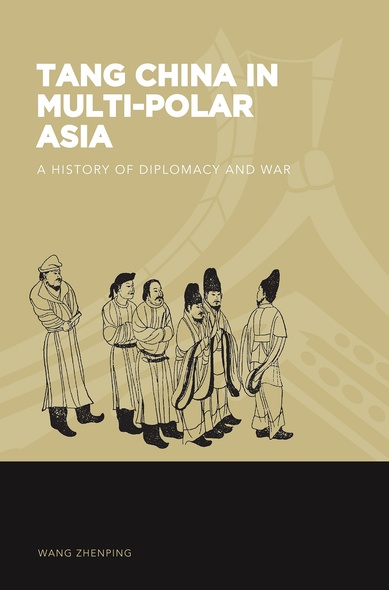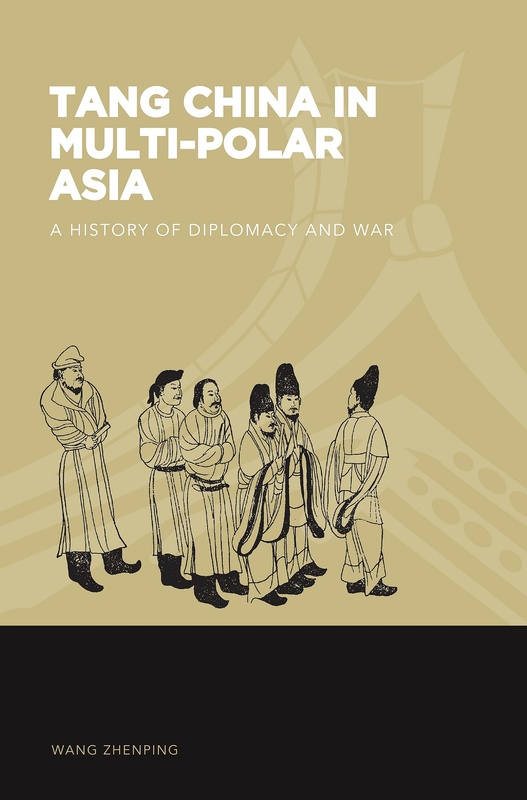
Tang China in Multi-Polar Asia
A History of Diplomacy and War
Using a synthetic narrative approach, this ambitious work uses the lens of multipolarity to analyze Tang China’s (618–907) relations with Turkestan; the Korean states of Koguryŏ, Silla, and Paekche; the state of Parhae in Manchuria; and the Nanzhao and Tibetan kingdoms. Without any one entity able to dominate Asia’s geopolitical landscape, the author argues that relations among these countries were quite fluid and dynamic—an interpretation that departs markedly from the prevalent view of China fixed at the center of a widespread “tribute system.”
To cope with external affairs in a tumultuous world, Tang China employed a dual management system that allowed both central and local officials to conduct foreign affairs. The court authorized Tang local administrators to receive foreign visitors, forward their diplomatic letters to the capital, and manage contact with outsiders whose territories bordered on China. Not limited to handling routine matters, local officials used their knowledge of border situations to influence the court’s foreign policy. Some even took the liberty of acting without the court’s authorization when an emergency occurred, thus adding another layer to multipolarity in the region’s geopolitics.
The book also sheds new light on the ideological foundation of Tang China’s foreign policy. Appropriateness, efficacy, expedience, and mutual self-interest guided the court’s actions abroad. Although officials often used “virtue” and “righteousness” in policy discussions and announcements, these terms were not abstract universal principles but justifications for the pursuit of self-interest by those involved. Detailed philological studies reveal that in the realm of international politics, “virtue” and “righteousness” were in fact viewed as pragmatic and utilitarian in nature.
Comprehensive and authoritative, Tang China in Multi-Polar Asia is a major work on Tang foreign relations that will reconceptualize our understanding of the complexities of diplomacy and war in imperial China.
Wang Zhenping’s new monograph provides us with a comprehensive and very useful study of Tang foreign relations on multiple frontiers. Given its thoroughness (in conjunction with the exceptional level of detail of the six-page table of contents), specialists of the Tang will find it to be a must-have reference. Historians of other Chinese dynasties interested in foreign relations will also find this book to be a very handy one-stop overview of foreign relations during the Tang.
Based on exacting scholarship on the primary sources the book provides detailed accounts of the relations between the Tang and their neighbours, as well as an excellent analysis of the internal processes that influenced foreign policy and strategic decisions.
His treatment of the institutions and processes of Tang external relations is the most thorough I have seen anywhere. His detailed account of the Tang empire’s seventh-century interventions in the Korean peninsula, drawing on Chinese, Korean, and Japanese sources, is also first rate, and his chapter on the northern nomads brilliantly exposes the extent to which the military fortunes of the Tang founders and their various rivals in the 610s and 620s depended upon the favor of the Eastern Türks. This book is essential reading for students of Tang China and China’s premodern foreign relations.
The book has many strong points. The author is clearly familiar with the relevant primary sources as well as the major scholarly works in the field, particularly those published in Chinese, Japanese, and English.
Historians of Chinese diplomacy have produced frameworks to analyze Chinese foreign relations in its own right, so it would not have been necessary for Wang to impose one borrowed from political science on the Chinese material and diminish his otherwise valuable book.
This is a major work of Tang scholarship, such as we shall not see for a long time to come. It strives to reconceptualize our understanding of imperial China’s foreign relations in a way that neither privileges the tribute system nor dismisses it as an affront to Westphalian principles. In doing so, the book is in perfect sync with the flood of current interest in retheorizing the history of Chinese foreign policy in more recent centuries. It is also an engagingly written narrative about a fascinating time and place in human history.
Zhenping Wang’s volume, executed with enviable scholarly acumen, takes the reader away from the single-themed Tang ‘foreign-relations-as-tribute’ model by a consideration of multiple polarities. Incorporating terms and concepts of world history—multiple-polarity, interdependence, soft power, and hard power—the author deals with Tang relations and reactions, varied as they were, to the numerous political states and entities surrounding Tang China. This work appreciably expands our understanding of China-in-the-world and the world-in-China.





